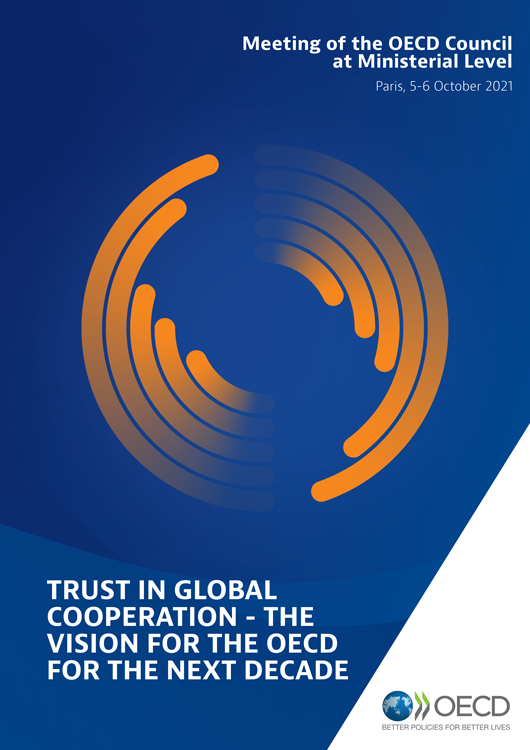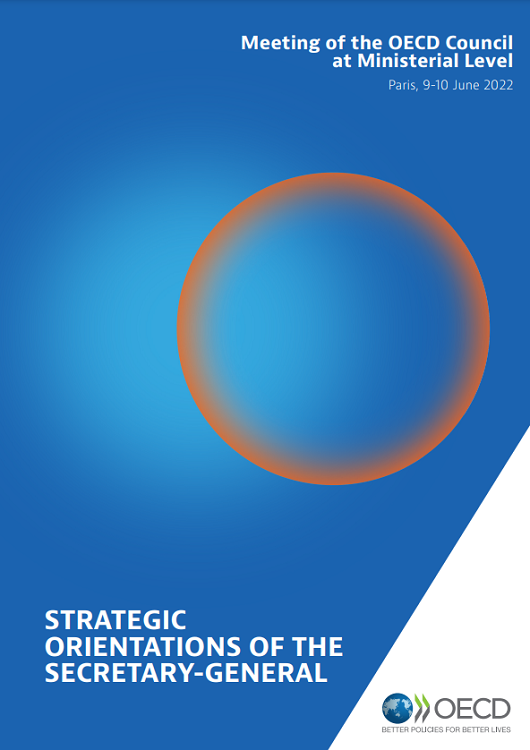Remarks by Angel Gurría, OECD Secretary-General, delivered at the 2013 Ministerial Summit on the Teaching Profession
14 March 2013, Amsterdam, Netherlands
Ministers, Union Leaders, Ladies and Gentlemen:
Thank you for inviting me to participate in this International Summit on the Teaching Profession here in Amsterdam. I am delighted to see how much the quality and depth of the dialogue between governments and unions has advanced since we first met in New York, almost two years ago. This is great news.
But, as Fred van Leuven said yesterday, we must work hard to retain the triple-A status of education. These days you can lose that triple-A status not just by doing something wrong, but also by doing too little too late. It is those countries that attract the greatest talent into teaching, that develop them effectively, and that get the most talented teachers into the most challenging classrooms that will succeed with preparing the next generation for an increasingly interconnected global economy. As Minister Bussemaker said in her opening remarks yesterday, it’s not about creating the one good teacher that everyone remembers from their own schooling. It is about improving the quality of all teachers, which will require support from all of us.
In today’s discussions there has been a clear consensus around the idea that these broader policies will not result in sustainable change without effective teacher-evaluation systems. As we often say, we cannot improve what we cannot evaluate. This is a good starting point.
However, we have also heard that there are significant variations in approaches to teacher evaluation, ranging from highly sophisticated national systems to informal approaches left entirely to the discretion of individual schools. In many cases, teacher evaluation seems to simply involve ticking off check boxes to meet administrative requirements. More worryingly, in some countries, teacher evaluation is barely happening at all.
Our Teaching and Learning International Survey (TALIS) backs this up. It shows that 20% of new teachers and 13% of experienced teachers have never received feedback on their teaching from anyone!
I think you will agree that the status quo is not acceptable – for our teachers, for our students and for future generations. Teacher evaluation needs to be prioritised and improved and it must focus on professional improvement, not on labelling teachers. As Under-Secretary Jakubowski stressed, it must also go beyond teachers talking to other teachers and government officials and include the perspectives of parents and students.
Today you have covered some of the key barriers to establishing effective teacher evaluation. In some cases evaluation systems are perceived to be too costly to design and maintain, both in terms of time and money. But all have agreed that it is critical to reconciling the demands for educational quality, the enhancement of teaching practices through professional development, and the recognition of teacher knowledge, skills and competencies. It is worth the investment.
By far the most contentious barrier to establishing effective teacher evaluation we have discussed is what criteria should be used to measure teacher performance. Is it about student test scores? A teacher’s ability to engage a classroom full of students? The opinions of students and partners? Or are all of these elements equally important?
Our frank discussions have exposed the fact that there are many situations where the vast majority of teachers get very high performance ratings on traditional performance appraisals. Yet at the same time PISA shows that, at the country level, student performance is unsatisfactory. I was pleased to hear that many of you are committed to tackling these mismatches between the messages we convey to teachers and the performance of education systems.
That is why we must build student learning growth – together with other measures – into teacher evaluation methods. I know how difficult and how controversial this is. It is clear that not all student learning outcomes can be easily measured. We need to become more creative when thinking about approaches to measurement and here I was intrigued when Minister Yamanaka explained how Japan succeeds with engaging the profession in evaluating outcomes through systematic lesson studies. We also need to become more scientific in our approaches, as Minister Liimin stressed. And, as Randy Weingarten said, we need to ensure that the consequences that we attach to teacher evaluation do not deter teachers from venturing into new territory and taking risks. At the very same time, and Commissioner Chester made this point very well, striving to perfect the evidence base on effective teaching should not deter us from applying what we already know now to develop and implement effective policies. The OECD is here to help you to do that.
Today we’ve discussed examples of how this can be done. For instance, in Delaware in the United-States, student outcomes are only one aspect of teacher evaluation. If students do not progress, teachers are not rated effective. But no teacher is rated ineffective if his or her students do progress.
Finally, let me conclude on the important issue of outputs and results. The effectiveness of teacher evaluation depends a great deal on what we do with the results of those evaluations. Walter Drescher summed it up very well when he said that we must move from an industrial work organisation of education towards a professional work organisation, where the profession owns and advances its professional standards. I think we all agree that to boost the utility of these evaluations we need to ensure that we feed information on performance back to teachers and school leaders. We also need to act on this feedback to design professional-development activities; establish rewards and support systems; and develop the channels through which the information gathered can be used to inform education policy.
Dear friends:
The quality of teachers is one of the most important factors in student outcomes. But our policies to improve teacher quality will only succeed if we effectively evaluate and measure performance. Evaluating teachers reflects a commitment to the improvement of this most valuable and important profession.
Surely, teacher evaluation is not a magic tool. But if we succeed in making teaching an attractive career choice that invites the best candidates; if we provide high-quality initial teacher education and good mentoring; if our teachers work with professional autonomy in a collaborative culture and with great school leaders; if we offer our teachers effective in-service professional development and attractive career structures; and if we engage our teachers actively in the design and implementation of educational reform and innovation, then effective teacher evaluation will make the decisive difference.
This is everyone’s business: Ministers, Unions, Inspectorates, school leaders and teachers - we must work together. The OECD stands ready to support you in these efforts: Better education policies and better evaluation policies for better lives!
Congratulations on a most productive and stimulating Summit. We look forward to seeing all of you in Tokyo in June 2014 at the Ministerial launch of our Teaching and Learning International Survey.
Thank you very much.

